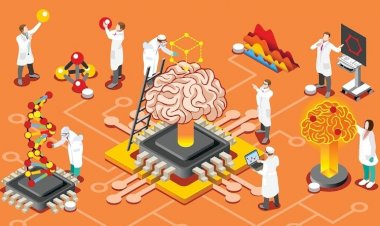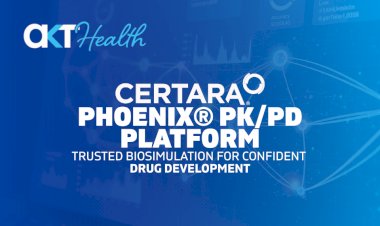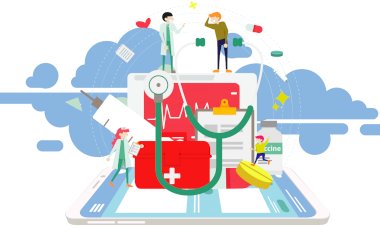How Decentralized Clinical Trials are Reshaping Medical Research
Discover the transformative impact of decentralized clinical trials (DCTs) on clinical research, exploring enhanced patient access, improved retention rates, real-time data collection, cost-effectiveness, increased data quality, faster recruitment, and resilience to external factors. Embrace the future of clinical trials with the innovative approaches of DCTs.

Amidst the dynamic landscape of clinical trials, a notable shift has emerged with the ascent of decentralized clinical trials (DCTs). These pioneering methodologies harness technology and local healthcare providers to directly engage patients in clinical research, departing from the conventional site-centric approach. In this blog, we will explore the numerous benefits that decentralized clinical trials offer, revolutionizing the way we conduct research and ultimately improving patient experiences and outcomes.
Enhanced Patient Access and Engagement- Decentralized clinical trials break down geographical barriers and enable broader patient participation. By leveraging virtual visits, in-home clinicians, remote monitoring, and mobile health applications, patients can participate from the comfort of their homes, eliminating the need for frequent travel to clinical trial sites. This increased accessibility encourages more diverse patient populations to enroll, leading to more representative and inclusive study results.
Traditional clinical trials often exclude potential participants who live far from the trial site, have limited mobility, or face other logistical challenges. Decentralized trials democratize access to medical research by accommodating a wide range of patients, including those with busy schedules, disabilities, or geographical constraints.
Improved Patient Retention- Patient retention is another beneficial, but also crucial factor in the success of clinical trials. Traditional trials often face challenges such as long travel distances, demanding visit schedules, and burdensome paperwork, all of which contribute to patient dropouts. DCTs address these issues by offering flexible scheduling and reducing the burden on patients. Remote monitoring, in-home visits, and virtual visits also eliminate the need for frequent in-person visits, enhancing convenience and increasing patient retention rates.
Patient dropouts can significantly disrupt a trial, leading to incomplete data and increased costs. DCTs prioritize the patient experience, making it easier for individuals to participate and adhere to the trial's requirements, ultimately leading to more reliable and comprehensive data.
Real-Time Data Collection and Analysis- Decentralized clinical trials leverage technology to collect real-time data from patients, allowing researchers to gain insights quickly and make informed decisions. Wearable devices, electronic diaries, real-time in-home data entry by clinicians, and mobile applications enable continuous monitoring, capturing valuable data on patients' health parameters and treatment adherence. This real-time data stream facilitates more accurate and up-to-date analysis, leading to more efficient and timely decision-making during the trial.
In traditional trials, data collection is often delayed due to manual data entry and paperwork, increasing the risk of errors and hindering researchers' ability to react promptly to emerging trends or issues. DCTs empower researchers with instantaneous access to data, ensuring that any necessary adjustments or interventions can occur without delay.
Cost-Effectiveness and Operational Efficiency- Additional benefits of decentralized clinical trials include reducing the need for physical sites and minimizing travel expenses, which provide significant cost savings. These trials can be conducted at a fraction of the cost of traditional trials, making them an attractive option for sponsors and Contract Research Organizations (CROs). Additionally, the streamlined data collection and reduced administrative burden lead to improved operational efficiency, allowing researchers to focus more on data analysis and trial management.
Reducing the financial burden associated with clinical trials can expand the number of studies that can be conducted and increase accessibility to novel therapies. This can lead to more rapid advancements in medical research and healthcare.
Increased Data Quality and Accuracy- Decentralized clinical trials employ electronic data capture systems and digital tools, minimizing the risk of data transcription errors and ensuring data accuracy. Real-time data collection also reduces the reliance on patients' memory recall, resulting in more reliable and precise data. The use of standardized protocols and centralized data management further enhances data quality and integrity.
Data quality is paramount in clinical research. Inaccurate or unreliable data can compromise the integrity of a study and hinder the development of new treatments or therapies. DCTs provide a robust framework for ensuring data accuracy and consistency throughout a trial.
Faster Recruitment and Study Timelines- Traditional clinical trials often face recruitment challenges, leading to delays in study timelines. DCTs overcome these hurdles by expanding the participant pool and simplifying the recruitment process. Leveraging digital advertising, social media, and patient databases, DCTs can reach a wider audience, accelerating participant enrollment and reducing study timelines. This expeditious recruitment process translates into quicker access to potentially life-saving therapies.
Swift recruitment is essential, especially in studies involving critical conditions. DCTs leverage digital tools and a patient-centric approach to recruit participants more efficiently, which can potentially speed up the development and availability of treatments.
Adapting to External Factors and Disasters- The COVID-19 pandemic highlighted the vulnerabilities of traditional clinical trials, which heavily rely on physical site visits and in-person interactions. Decentralized clinical trials offer built-in resilience to external factors and disasters. With remote monitoring and virtual visits, trials can continue uninterrupted even in the face of unforeseen circumstances, ensuring patient safety and trial continuity.
Resilience and Continuity- The ability to adapt to unexpected challenges is a crucial aspect of modern clinical research. DCTs provide a level of resilience that traditional trials lack. Whether facing a pandemic, natural disaster, or other disruptions, DCTs allow research to continue without compromising patient safety or data quality.
Decentralized clinical trials are revolutionizing the landscape of clinical research by offering enhanced patient access, improved retention rates, real-time data collection, cost-effectiveness, increased data quality, faster recruitment, and resilience to external factors. By embracing these innovative approaches, sponsors and CROs can unlock a myriad of benefits, ultimately advancing medical knowledge, expediting therapeutic discoveries, and transforming patient experiences in clinical trials.
If you’re looking for a way to reduce patient burden and meet your patient recruitment and retention needs, connect with our DCT team today. Our experts have spent more than a decade bringing clinical trials to patients using a DCT model, and we'd love to help you implement this approach. Contact us today to discuss the many ways a DCT model can benefit your clinical trial!



































